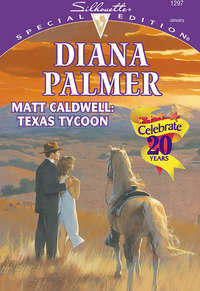
Полная версия
Courageous
His eyes narrowed. “Gracie put you up to this. Didn’t she?”
Jason shrugged and pursed his lips. “Pregnant women have cravings. Strawberry ice cream with pickle topping, crushed ice with mango, their friends getting asked to holiday balls …” He glanced at Grange with twinkling eyes. “You wouldn’t want to upset Gracie?”
“Yeah, hit me in my weak spot, why don’t you?” Grange muttered.
Jason grinned wider.
He shrugged. “Okay. I should be testing weapons and drilling men. But I’ll take the evening off and escort Peg to a ball I don’t want to attend. Why not?”
“And be nice, could you?” Jason groaned. “Just once?”
He snarled. “I hate nice. I’m not nice. I was a major in a forward company in Iraq.”
“It will be good practice for when you have to charm insurgents to surrender to your boss, the general.”
Grange smiled coldly. “I won’t need charm. I have several retooled automatic weapons and a few grenades.”
Jason just shook his head.
Peg was in the kitchen when Grange walked through the door of his ranch house. Jason had given him the house with the property, against his protests. Grange was still, technically, Jason’s foreman on the huge Pendleton Comanche Wells property. But when he had free time, he could build up his own herd and renovate the huge white elephant of a house. Jason was paying Ed’s salary. Grange was paying Peg’s.
He never failed to appreciate Jason’s generosity. The older man was a fanatic about repaying debts, and he felt that he owed Grange a lot for saving Gracie. Grange refused money, so Jason had found another way to repay him: the land, the house and the seed herd. It was worth a small fortune, but it was impossible to get around Jason when he was determined. Gracie had also been determined. In the end, Grange gave up and accepted with whatever grace he could manage. It was a hell of a reward. But it had been a desperate and dangerous mission. He could have died, so could his men. He’d managed the rescue in short time, and with no serious casualties. He hoped, he prayed, he’d be able to do the same with Emilio Machado’s invasion force the week after Thanksgiving, when they went to South America to liberate Barrera from a merciless dictator who had led a coup against Machado.
Peg was nineteen, vivacious, with long blond hair and green eyes and a wicked smile. She and her father had been alone for five years, since the death of her mother from an aggressive, vicious cancer. The two of them had ended up working for Jason Pendleton, but his obligation to Grange had settled them here, in this old house.
Neither of them minded. Ed loved being foreman of Grange’s small operation. He got the same salary he’d drawn from Jason at the Pendleton ranch property, but the duties were less rigorous and he had more free time. Peg, on the other hand, only had to cook for the three of them, and she was good at it. Not that the bunkhouse cook at Jason’s place didn’t stop by frequently to beg pies and cakes from her, because he couldn’t do those. Peg never minded. She loved to cook.
“You should be in college,” Grange said without preamble when he walked into the kitchen where she was just putting a meatloaf into the oven.
She glanced at him, laughed and stirred her potatoes, which were boiling. “Sure. I’ll go to Harvard next semester. Remind me to ask Dad for the tuition.”
He glared at her. “There are scholarships.”
“I was a straight-C student.”
“Work-study.”
She turned around and looked up at him. It was a long way. She only came up to his chin. Her long, light blond hair was in two pigtails and her sweatshirt was spotted with grease. So were her jeans. She never wore an apron. She pointed the spoon at him. “And what would I study, exactly?”
“Home economics?”
She glowered at him. “Do you really want me to go to college and live in a coed dorm?”
“Excuse me?”
“A dorm that has men and women living in the same rooms, when they don’t even know each other? Do you think I’m undressing in an apartment with a man I don’t know?”
He gaped at her. “You have to be kidding.”
“I am not. They have dorms for married couples. The rest have no choice about whether their dorm mates are male or female.” She glared harder. “I was raised to believe that things work in a certain way. That’s why I live in a place where people think like I do.” She shrugged. “I read this old book by a guy named Toffler. Thirty years ago, he predicted that there would be people out of step with society and who couldn’t fit in.” She turned to him. “That’s me. Out of step. Can’t fit in. Doesn’t belong anywhere. Well, anywhere except Jacobsville. Or Comanche Wells.”
He had to admit, he didn’t like the idea of her living in a dorm with male students she didn’t know. On the other hand, he wouldn’t like being forced to live with some woman he didn’t know. How the world had changed in a decade or so!
He leaned against the wall. “Okay. I guess you’re right. But you could commute to a college, or through the internet.”
“I’ve thought about that.”
He studied her pretty bow of a mouth, her rounded chin, her elegant neck. Her eyes were her finest feature, but the pigtails and lack of makeup did nothing for her.
She saw where he was staring and grinned. “Deterrents.”
He blinked. “Excuse me?”
“My pigtails and my lack of makeup. They keep suitors away. If you don’t care about fancy clothes and makeup, you’re smart, right? So men don’t like smart women.”
He cocked an eyebrow. “If I wanted a relationship, I’d like a smart woman. I have a degree in political science with a double major in that and Arabic language studies.”
The fork she was testing her potatoes with was suspended in midair. “You speak Arabic?”
He nodded. “Several dialects.”
Her eyes fell. “Oh.” She hadn’t realized that he was college educated. She felt suddenly inadequate. He’d said that she needed to go to college herself. Did he find her unattractive because her mind wasn’t developed like his? Or did he want her to leave?
He frowned. She looked worried. He recalled what Jason had said about that designer gown she’d been loaned. He grimaced. Well, he didn’t really have any plans to take another woman …
“How about going to the Cattleman’s Ball with me?” he asked bluntly.
She went from doubt and misery to euphoria in five seconds flat. She gaped at him. “Me?”
“Well, I don’t think your Dad would look very good in a ball gown,” he replied.
“The ball,” she said, confused.
He nodded. “I hate parties,” he said flatly. “But I guess I can stand it for a couple of hours.”
She nodded. She looked blank.
“If you want to go?” he asked, because she looked … He wasn’t sure how she looked.
“Yes!”
He laughed. The fork had flown out of her hand in her excitement. It landed, oddly, right in the sink. He laughed harder. “Nice toss. You might consider the NBA.”
“Oh, I don’t play football.”
He started to tell her it was basketball, but she was beaming, and she looked really pretty. He smiled. His dark eyes sparkled. “Just a joke.”
“Okay.”
He shouldered away from the wall. “I’ll get back to work. We’ll leave about six on Saturday. They’re serving canapés and whatnot. I don’t think you’ll need to cook supper, except something for your dad.”
She nodded. “Okay.”
He smiled and walked out.
Peg barely noticed the potatoes until water splashed out onto the stove. She tested them with a clean fork and moved the pan off the burner. She was going to the ball. She felt like Cinderella. She’d fix up her face and hair and make Grange proud. It would be the happiest night of her entire life. She felt as if she were walking on air as she started to mash the potatoes in a big ceramic bowl.
“I hear you’re going to the ball,” Ed Larson teased after they’d shared supper with Grange.
She blushed. She’d been doing that all through the meal. It was almost a relief when Grange went out to check the livestock.
“Yes,” she said. “I was shocked that he asked me. I’ll bet Gracie had her husband goad him into it, though,” she added sadly. “I’m sure he said already that he wasn’t going.”
“I’m glad he is,” Ed said. His face was solemn as he took a sip of coffee. “Rumor is that his group is leaving with Emilio Machado very soon. Revolution is never pretty.”
“So soon?” she blurted out. She knew about the mission. There were no secrets in small towns. Besides, Rick Marquez, whose adopted mother Barbara ran the Jacobsville café, had turned out to be General Machado’s son.
“Yes,” her father replied.
“He’ll die.”
“No, he won’t,” he said, and smiled. “Winslow was a major in the army. He served in spec ops in Iraq and he came home. He’ll be fine.”
“You think so. Really?”
“Really.”
She sighed. “Why do people fight?”
His eyes had a faraway expression. “Sometimes for stupid reasons. Sometimes for really patriotic ones. In this case,” he added, glancing at her, “to stop a dictator from having people shot in their own homes for questioning his policies.”
“Good heavens!”
He nodded. “General Machado had a democratic government, with handpicked heads of departments. He toured his country, talked to his people to see what their needs were. He set up committees, had representatives from indigenous groups on his council, even worked with neighboring countries to set up free-trade agreements that would benefit the region.” He shook his head. “So he goes to another country to talk about one of those agreements, and while he’s away, this serpent brings in his political cronies, has them put in charge of the military and overthrows the government.”
“Nice guy,” she said sarcastically.
“The general’s right-hand man, too, his political chief, Arturo Sapara,” Ed continued. “Sapara takes over the government then he closes down the television and radio stations and puts a representative in each newspaper office to report directly to him. He controls all the mass media. He puts cameras everywhere and spies on the people. Somebody says, anyone he doesn’t like … they disappear, like two internationally known college professors disappeared a few months ago.”
“Ouch.”
“People think things like that can’t happen to them.” He sighed. “They can happen anywhere that the public turns a blind eye to injustice.”
“I didn’t realize it was that bad.”
“Machado says he’s not going to stand by and let the work he put into that democracy go down the drain. It’s taken him months to mount a counteroffensive, but he’s got the men and the money now, and he’s going to act.”
“I hope he wins.” She grimaced. “I just don’t want Grange to die.”
He chuckled. “You underestimate that young man,” he assured her. “He’s like a cat. He’s got nine lives. And he thinks outside the box, which is what makes him so invaluable to Machado. Example,” he added, his eyes twinkling as he warmed to his subject, “North Africa in the early days of the North African campaign in World War II. The commanding German field marshal, Rommel, had only a handful of troops compared to the British. But he wanted them to think he had more. So he had his men march through town in a parade, go around the corner and march through again several times to give the appearance of numbers. He also had huge fans, aircraft engines, hooked up behind trucks to blow up the desert sand and make his column appear larger than it really was. By using such tricks, he psyched out the opposition for a long time. That’s what I call thinking outside the box.”
“Wow. I never heard of that German officer.”
He gave her a blank stare. “Excuse me? Didn’t you study about World War II in school?”
“Sure. We learned about this general called Eisenhower who later became president. Oh, and this guy Churchill who was the leader in England.”
“What about Montgomery? Patton?”
She blinked. “Who were they?”
He finished his coffee and got up from the table. “I’ll quote George Santayana, a Harvard professor. ‘Those who cannot remember the past are condemned to repeat it.’ And for the record, high school history needs retooling!”
“Modern history.” She made a face. “A lot of dates and insignificant facts.”
“The stuff of legends.”
“If you say so.”
He glared at her, grimaced and gave up. “We’re leaving the world in the hands of shallow thinkers when we old ones die.”
“I am not a shallow thinker,” she protested. “I just don’t like history.”
He cocked his head. “Grange does.”
She averted her eyes. “Does he?”
“Military history, especially. We have running debates on it.”
She shrugged. “I guess it wouldn’t hurt to check it out on Google.”
“There are books in the bookcase,” he said, aghast. “Real, honest to goodness books!”
“Dead trees,” she muttered. “Kill a tree to make a book, when there are perfectly good ebooks for sale all over the web.”
He threw up his hands. “I’m leaving. Next you’ll be telling me that you agree with all the bookstore and library closings all over the country.”
She hesitated. “I think it’s very sad,” she said unexpectedly. “A lot of people can’t afford to buy books, even used ones. So the library has all that knowledge available for free. What are people going to do when they don’t have any way to learn things except in school?”
He came back and hugged her. “Now I know you’re really my daughter.” He chuckled.
She grinned. “Aw, shucks.” She lowered her head and scuffed her toe on the floor. “Twarn’t nothing,” she drawled.
He laughed and went away.
“Pie?” she called after him.
“Wait an hour or so until dinner has time to settle!” he called back.
“Okay.”
She heated up a cup of coffee and carried it through the house, out the back door and into the barn. Grange was sitting out there in an old cane-bottom wooden chair with a prize heifer that was calving for the first time. He wouldn’t admit it, but he was attached to the Santa Gertrudis first-time mother, whom he called Bossie. She was having a hard time.
“Damned big bull that sired this calf,” he muttered, accepting the coffee with a grateful smile. “If I’d known who the sire was, I’d never have let Tom Hayes sell me this pregnant heifer.”
She grimaced. She knew about birth weight ratios. A first-time mother needed a small calf. The herd sire who bred this one was huge, which meant a much higher birth weight than was recommended. It would endanger the mother.
“I hope she’ll do okay.”
“She will, if I have to have the vet come out here and sit with her all night and pay him.”
She laughed. “Dr. Bentley Rydel would do it for free. He loves animals.”
“Good thing. His brother-in-law sure is one. An animal, I mean.”
“You really have it in for mercenaries, don’t you?” she asked, curious.
“Not all of them,” he replied. “Eb Scott’s bunch is a notch above the rest. But Kell Drake, Rydel’s brother-in-law, was a career military man and he threw it all up to go off searching for adventure in, of all places, Africa!”
“Is Africa worse than South America?” she asked, making a point.
“Much worse, because you have so damned many factions trying to get a foothold there,” he replied. “Most of the aid that’s sent never reaches the starving masses, it goes to sale for the highest bidder and the money goes in some warlord’s pocket.” He shook his head. “Guns don’t really solve problems, you know. But neither does diplomacy when you have two religions slugging it out in the same region, plus class warfare, tribal conflicts, greedy corporations …”
“Is there anybody you like?” she asked pointedly.
“George Patton.”
She laughed, remembering her father had mentioned the name. “Who’s he?”
His eyes almost popped.
“Well, I’m young,” she muttered. “You can’t expect me to know everything.”
He drew in a long breath. She was. Very young. It made him uncomfortable. “He was a famous general in World War II. He served in several theaters of operations for the Allies, predominantly the North African and European campaigns.”
“Oh, that Patton!” she exclaimed. “My dad was telling me about a German general named Rommel in North Africa. Then there was this movie I watched … did Patton really do those things?”
He chuckled. “Some of them. I went through West Point with a distant cousin of his.”
“Neat!”
He finished the coffee. “You should go back in. It’s getting cold.”
She took the cup from his outstretched hand. “It is.”
“Thanks for the coffee.”
She shrugged. “Welcome.” She glanced at the heifer, who was staring at them with wide brown eyes. “I hope Bossie does okay.”
He smiled. “Me, too. Thanks.”
She nodded, smiled and left him there.
The next morning, the veterinarian’s truck was sitting at the barn. Before she even started breakfast, Peg ran out the back door and down to the barn. She’d worried about the mother cow all night.
Grange was leaning against a post, talking to the vet. They both turned when she walked in.
“Well?” she asked a little hesitantly, because she was concerned.
Grange smiled. “Bull calf. Mother and baby doing fine.”
She let out a sigh. “Thank goodness!”
Grange grinned at her obvious relief.
“If you’d like to stay for breakfast,” she told the vet, “I’m making biscuits and fresh sausage and eggs. We have hens and he—” she pointed at Grange “—bought us a freezer full of pork sausage and ribs and loins.” She grinned. “We’re rich!”
They both laughed.
“You’re very welcome to stay,” Grange told him. “She cooks plenty. And she’s a good cook.”
Peg blushed. Her eyes sparkled. “Nice to be appreciated.”
“In that case, I’d love to join you, thanks.”
“I’ll get busy.” She ran all the way back to the house. Grange liked her cooking. She could have floated.
2
“What’s your brother-in-law up to these days?” Grange asked their guest.
He got a droll look in reply. “Kell Drake always changes the subject when I ask. But he and one of his cronies were reportedly up to their ears in some project in South Africa that involves guns. I don’t bother to ask,” Bentley Rydel added when Grange started another question. “It’s a waste of breath. He was working on something with Rourke, but I hear he’s going overseas with you,” he added with a pointed look.
“Rourke,” Grange sighed, shaking his head. “Now there’s a piece of work.”
“Who’s Rourke?” Peg wanted to know.
“Somebody you don’t even need to meet,” Grange told her firmly. “He’s a …”
“Please.” Bentley held up his hand, chuckling. “There’s a lady present.”
“You’re right,” Grange agreed, sipping coffee, with a smile in Peg’s direction.
Peg laughed.
“Well, Rourke’s in a class all his own,” Grange continued. “Even our police chief in Jacobsville, Cash Grier, avoids him, and Grier’s worked with some scoundrels in his time. Word is,” he added, “that Kilraven, who used to work for some federal agency undercover in Grier’s department, almost came to blows with Rourke over the woman he married.”
“A ladies’ man, is he?” Ed asked.
“Hard to say,” Grange replied. “He thinks he is.”
“He’s definitely got the connections,” Bentley mused. “Rumor has it that he’s the illegitimate son of billionaire K.C. Kantor, who was once at the forefront of most conflicts in the African states.”
“I’ve read about him,” Ed replied. “A fascinating man.”
“He never married. They say he was in love with a woman who became a nun. He has a godchild who married into a rich Wyoming ranching family.”
“Well!” Ed exclaimed. “The things you learn about people!”
“True.” Bentley checked his watch. “Gotta run, I’m doing surgery at the office in thirty minutes.” He got up. “Thanks for breakfast, Peg,” he added with a smile.
“You’re welcome. Tell your wife I said hello. Cappie was a few grades ahead of me in school, but I knew her. She’s a sweetie.”
“I’ll tell her you said so,” he said with a grin.” See you.”
The men walked him out to his truck while Peg cleared away the breakfast dishes. She put everything in the dishwasher and went upstairs to see what she had in the way of accessories for her big night at the ball. Cinderella, she thought amusedly. That’s me.
Peg loved to plant things. Especially bulbs. She knew that next spring, the hyacinths and tulips and daffodils and narcissus bulbs that she was planting now would be glorious in color and scent. Hyacinths, she mused, smelled better than the most expensive perfume. She knew about expensive perfume; she spent a lot of time at cosmetic counters sniffing it. She’d never be able to buy any of that for herself. But she loved to sample the luxurious scents when she went to the mall in San Antonio. She couldn’t go that often, but she always made the most of each trip.
She finished putting the last of the hyacinths in, and got up from the ground. Her white sweatshirt was streaked with dirt. Probably her hair was, too. But she loved to play in the dirt. So did Jason Pendleton’s wife, Gracie, who’d sent her the bulbs. Gardeners were almost always friends at first sight. There was a kinship among people who loved to plant things.
Grange drove up at the barn, cut the engine and got out. He walked up to Peg and stared at the long rectangular flower bed she’d put right next to the barn. He frowned.
“It’s convenient to the source of my best fertilizer,” she pointed out.
It took him a few seconds to puzzle that out. She was talking about animal waste, which was organic and quite effective. He chuckled. “I see.”
“Mrs. Pendleton sent me the bulbs. They’re nice ones, from her own garden. You don’t really mind …?”
He shook his head. “Amuse yourself. I don’t care.”
“Dad’s gone to the market,” she said, wide-eyed. “Would you like to ravish me while he’s away?”
He glared at her. This was her usual way of teasing, and it was beginning to get to him in ways he didn’t like. “No, I would not,” he said firmly.
She glared back. “Honestly, you’re stuck back in the ice age! Everybody does it these days!”
“Including you?”
“Of course, me,” she scoffed. “I’ve had sex continuously since I was fourteen.”
His eyes were growing darker. He was shocked and trying not to show it. Peg didn’t appear to him as a rounder. Was he that bad a judge of character?
“It’s no big deal!” she exclaimed. “You are such a throwback!”
He turned on his heel and stormed off into the barn. He didn’t like thinking that Peg was promiscuous. He was too old-fashioned to think it was a laudable lifestyle, regardless of how many people did.
She followed him into the barn, waving her trowel in the air. “Listen, people don’t have to abide by ancient doctrines that have no place in modern society,” she burst out. “There isn’t one show on television that has people getting married before they indulge!”
He whirled, glaring. “That’s exactly why I don’t watch television.”
“You’re just the kind of man who thinks women should be saints and go around in frilly clothes and be seen yet not heard!”
“And you’re the sort who thinks they should dress like streetwalkers and throw out profanity with every other breath!”
She tossed the trowel away and went right up to him. “I threaten you, don’t I,” she teased. “You’re mad for me, but you think I’m too young and innocent …!”
The sudden pause was because, in a lightning-fast move that she hadn’t anticipated, he backed her right into the barn wall, slammed his powerful body down on hers and kissed her with an expertise and insistence that made her heart stop dead.
“Damn you,” he ground out against her mouth, and both hands went to her hips, grinding them into the sudden arousal that was as unexpected as it was painful.
She was sorry she’d made such claims. She was scared to death. She’d never even been kissed except once by a boy who was even more bashful than she’d been, and the kiss had been almost repulsive to her. Since she’d had feelings for Grange, she hadn’t even dated.









